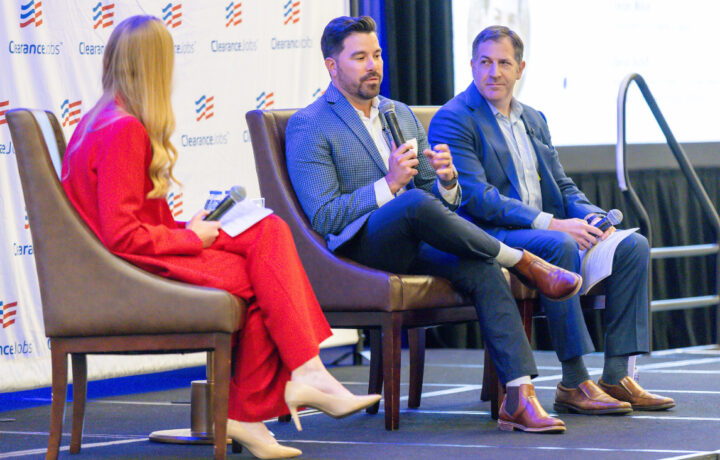In a candid fireside chat, OpenAI’s Felipe Millon and Navy veteran and innovation leader David Schiff explored how AI, public-private partnerships, and bottom-up experimentation are redefining cleared careers.
Millon traced a path from Lockheed Martin and AWS to becoming OpenAI’s first government hire, noting the shift of frontier AI research and compute to industry. That reality, he argued, elevates the importance of partnerships like DIU, CSOs, and OTAs—mechanisms that let non-traditional vendors bring cutting-edge capabilities to mission faster. Schiff, who served at sea and later helped stand up NavalX, framed the same trend from the Pentagon side: more hackathons, prototyping, and test events—not more slide decks—so operators can use technology and prove value early.
A central theme was reframing AI’s impact from job automation to task automation. Some tasks—research, summarization, first-draft coding—are now routinely faster and better with AI assistance, while higher-order work (judgment, tradeoffs, persuasion) remains distinctly human. The winning posture: be flexible, learn fast, and “learn to code—with AI.” Millon shared practical tips: rely on voice dictation to provide rich context and try meta-prompting—asking the model to help you design the prompt for the real task.
For recruiters and hiring managers, the panel drew a bright line: using ChatGPT to prepare for interviews is table stakes; using it live to answer questions is not. On the interviewer side, AI is already accelerating debriefs—turning raw notes into structured, decision-ready feedback.
If national security wants to attract top talent, both speakers said, it must pair mission with modern tools. The work is inherently meaningful; the friction is when new hires step behind the badge and face “third-rate” tech. CIO shops should prioritize accreditation and access so the on-the-job experience matches the consumer-grade tools people use at home. Storytelling matters, too: share specific, unclassified wins—like Task Force Lima’s bottoms-up experiments or chaplains using generative AI to free time for one-on-one support—to make the mission tangible.
Their closing charge was simple: accelerate access, celebrate real user stories, and invite experimentation. Do that, and cleared careers won’t just be “cool again”—they’ll become the most compelling place to build an AI-enabled career in service of something bigger.



